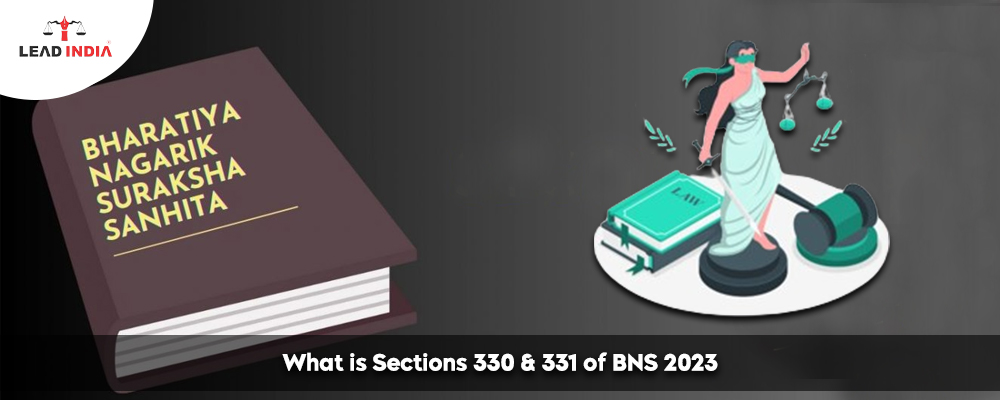To enter another person’s property without that person’s express, implicit, or legal consent is known as trespassing. The simple definition of “trespass” is entering someone else’s land or property without their permission. It is typically understood to be a civil offense.
Under Bhartiya Nyaya Sanhita, trespassing with the intent to commit a crime is considered criminal trespass and is penalized as such.
Section 330 of BNS
Section 330 of the BNS defines house trespass and house breaking as:
- A person is considered to have committed home trespass if they have taken steps to hide their actions from someone who has the authority to forbid or expel them from the building, tent, or vessel in question.
- According to this definition, trespassing entails specific intent and behaviour, such as the trespasser entering the property illegally and making active efforts to evade detection by those in a position of power to stop them from entering.
Need A Legal Advice
The internet is not a lawyer and neither are you. Talk to a real lawyer about your legal issue

Section 331 of BNS
- Anyone found guilty of loitering, trespassing or breaking into a residence will be subject to a fine in addition to serving a period of imprisonment of any kind up to two years.
- Anyone found guilty of lurking on private property or breaking into a dwelling after dusk but before dawn will be punished with up to three years in either type of jail as well as a fine.
- In addition to being subject to a fine, anyone found guilty of lurking house trespassing or breaking into a house with the intent to commit any offense that carries a jail sentence faces up to three years in prison. If theft is the intended offense, the sentence may be increased to ten years.
- In addition to being subject to a fine, anyone found guilty of lurking, house-trespassing, or house-breaking after sunset and before sunrise with the intent to commit any offence carrying a jail sentence faces a maximum term of five years in prison of either kind. If theft is the intended offense, the sentence may be increased to fourteen years.
- Anybody who engages in lurking house trespassing, house breaking, or assault with the intent to harm someone, or who has prepared to harm someone, or who has wrongfully restrained someone, or who has put someone in fear of harm, assault, or wrongful restraint, faces possible jail time of up to ten years, in addition to a fine.
- Anybody who engages in lurking trespassing or breaking into houses after dusk and before dawn, knowing that they will hurt or assault someone, or wrongfully restraining someone, or making someone fear they will be hurt, attacked, or wrongly restrained, faces a maximum fourteen-year sentence in prison of any kind, as well as a fine.
- Any individual who commits lurking house trespass or house breaking and inflicts severe harm on another person, or attempts to cause death or severe harm on another person, faces life imprisonment or a term of imprisonment of up to ten years, in addition to a fine.
- If at any point during the commission of a lurking house trespass or house breaking after sunset and before sunrise, any person found guilty of this offense willfully cause or attempt to cause death or grievous harm to any person, then all parties involved in the aforementioned crimes will be punished with life in prison or, in the case of either type of imprisonment, a term that may not exceed ten years, as well as a fine.
It is necessary to protect the legally protected right to enjoy property in peace. Criminal trespass occurs when someone enters a location, whether legally or illegally, with the aim to commit a crime or to offend, irritate, or threaten somebody who is in ownership of that property. Furthermore, it is considered house trespass and is penalized under Sections 330 and 331 of BNS if the trespass is against a place of worship or a human dwelling. Depending on when and where it occurs, there are numerous aggravated forms of criminal trespass.
One can talk to a lawyer from Lead India for any kind of legal support. In India, free legal advice online can be obtained at Lead India. Along with receiving free legal advice online, one can also ask questions to the experts online free through Lead India.





 Talk to a Lawyer
Talk to a Lawyer